
Waza National Park: A Wild Oasis in Cameroon
Waza National Park is a haven for wildlife lovers and adventure seekers. Located in the Far North Region of Cameroon, this park is one of Africa's most important protected areas. It spans over 1,700 square kilometers and is home to a diverse array of animals, including lions, elephants, giraffes, and various bird species. The park's landscape is a mix of savannah, floodplains, and woodland, offering a picturesque setting for safari tours. Visitors can experience the thrill of seeing animals in their natural habitat, whether it's through guided jeep tours or walking safaris. The best time to visit is during the dry season, from November to April, when wildlife is easier to spot around water sources. In addition to its rich biodiversity, Waza National Park is also a sanctuary for bird watchers. The park boasts over 379 bird species, making it a paradise for ornithologists. The park's management works hard to maintain its pristine condition, ensuring that it remains a safe haven for both the animals and the tourists who come to visit.
Local tips in Waza National Park
- Visit during the dry season (November to April) for the best wildlife viewing.
- Hire a local guide for an informative and safe safari experience.
- Bring binoculars and a camera with a good zoom lens for bird watching.
- Wear neutral-colored clothing to blend into the environment and avoid startling the animals.
- Stay hydrated and carry plenty of water, especially during the hot months.
Waza National Park: A Wild Oasis in Cameroon
Waza National Park is a haven for wildlife lovers and adventure seekers. Located in the Far North Region of Cameroon, this park is one of Africa's most important protected areas. It spans over 1,700 square kilometers and is home to a diverse array of animals, including lions, elephants, giraffes, and various bird species. The park's landscape is a mix of savannah, floodplains, and woodland, offering a picturesque setting for safari tours. Visitors can experience the thrill of seeing animals in their natural habitat, whether it's through guided jeep tours or walking safaris. The best time to visit is during the dry season, from November to April, when wildlife is easier to spot around water sources. In addition to its rich biodiversity, Waza National Park is also a sanctuary for bird watchers. The park boasts over 379 bird species, making it a paradise for ornithologists. The park's management works hard to maintain its pristine condition, ensuring that it remains a safe haven for both the animals and the tourists who come to visit.
When is the best time to go to Waza National Park?
Unmissable attractions to see
tacha haman Gawar
Explore Tacha Haman Gawar, a tranquil park in Mokolo, perfect for relaxation and enjoying nature's beauty amidst scenic landscapes.
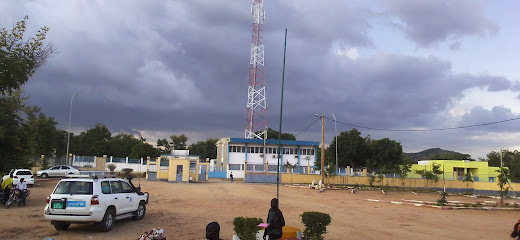
Rhumsiki Sunset Viewpoint
Experience the stunning beauty of Rhumsiki Sunset Viewpoint, where breathtaking sunsets and unique rock formations create an unforgettable natural spectacle.
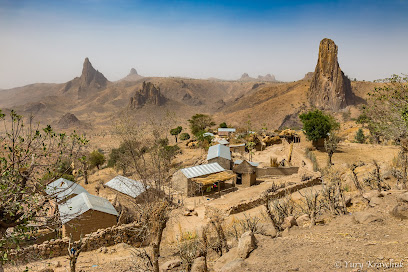
Mont Maroua
Explore the stunning landscapes of Mont Maroua, Cameroon—a hiker's paradise offering breathtaking views and diverse wildlife.
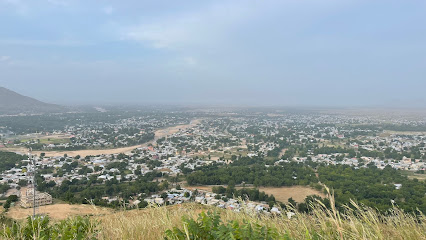
Modzogo / Gokoro Cameroon National Park
Discover the serene landscapes and diverse wildlife of Modzogo / Gokoro Cameroon National Park, a hidden gem in Central Africa.
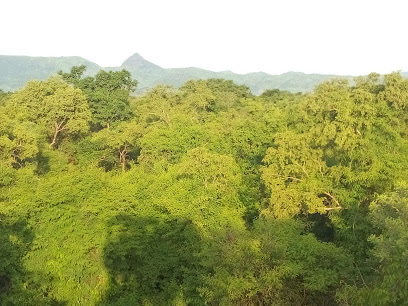
Monument du Commandant Lamy
Explore the Monument du Commandant Lamy in Kousseri, a historical tribute that offers a glimpse into Cameroon’s colonial past amidst scenic surroundings.
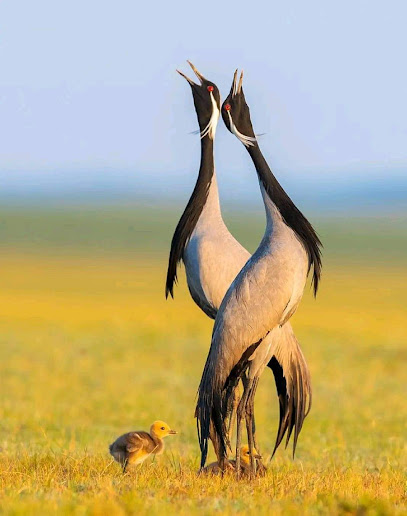
Foyer Moufou
Experience the warm hospitality and vibrant culture of Maroua at Foyer Moufou, a captivating tourist attraction that immerses you in local life.

Petit barrage de Mokolo
Explore the serene Petit Barrage de Mokolo, a hidden gem in Cameroon, perfect for nature lovers and those seeking tranquility amidst stunning landscapes.
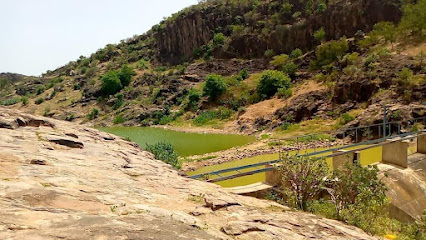
Mayo Boula
Explore the breathtaking landscapes and rich cultural heritage of Mayo Boula, a hidden gem in Guirlé, Cameroon.
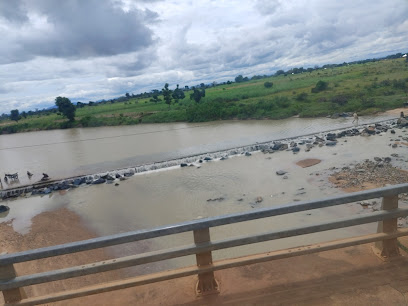
Ibraheem
Experience the vibrant culture and craftsmanship at Ibraheem, a must-visit tourist attraction in Maroua, Cameroon.

Tribune Dargala
Explore the tranquil beauty of Tribune Dargala, a picturesque park in Dargala perfect for relaxation, picnics, and nature walks.
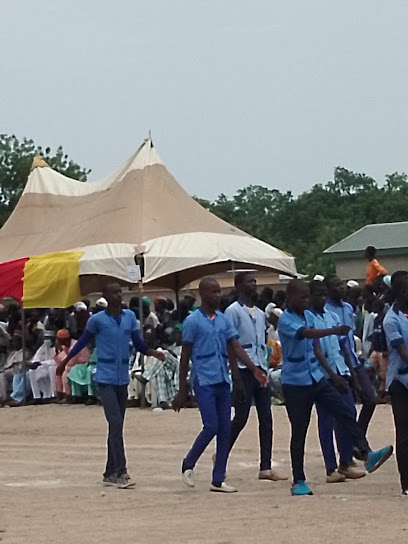
Kalamaloue National Park
Explore the enchanting landscapes of Kalamaloue National Park, a haven of biodiversity and tranquility in the heart of Cameroon.

Carrière Mouda-Sarmozougui
Explore Carrière Mouda-Sarmozougui in Ouro Loppe, Cameroon, where breathtaking landscapes meet rich cultural experiences for an unforgettable adventure.

Carrefour Laïndé
Explore Carrefour Laïndé in Maroua, a vibrant tourist attraction showcasing local culture, delicious food, and authentic Cameroonian experiences.
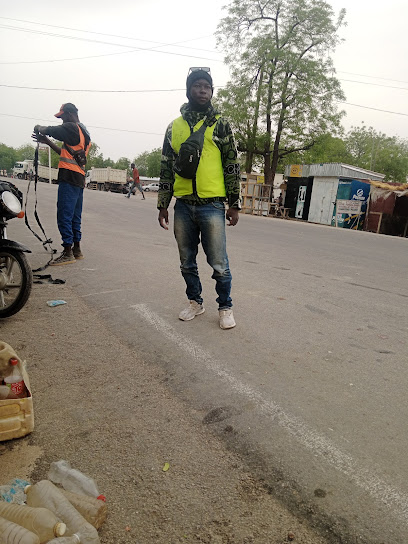
Plage godola
Experience the serene beauty and vibrant culture of Plage Godola, a must-visit tourist attraction in Cameroon’s breathtaking coastal landscape.
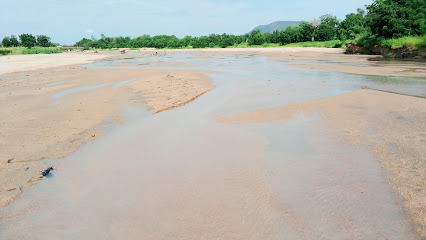
Montagne de Tokombéré
Discover the breathtaking beauty and vibrant culture at Montagne de Tokombéré, a must-visit natural wonder in Cameroon for every adventurous traveler.
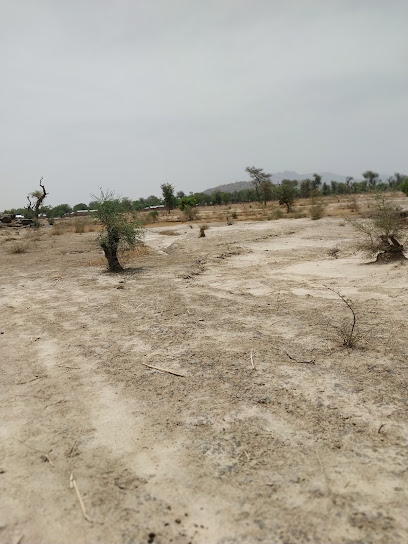
Essential places to dine
Tchopetyamo
Experience authentic Cameroonian cuisine at Tchopetyamo in Douala - where vibrant flavors meet warm hospitality.

Saga Africa Restaurant - Akwa, Douala
Experience the best of African and European cuisine at Saga Africa Restaurant in Douala's vibrant Akwa district.
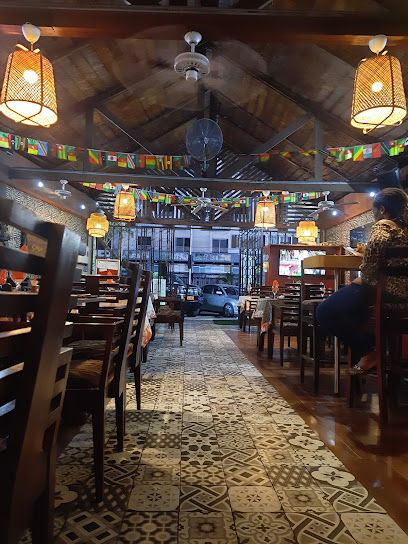
LA PIZZERIA
Experience the taste of Italy in Douala at LA PIZZERIA - where authentic flavors meet warm hospitality.
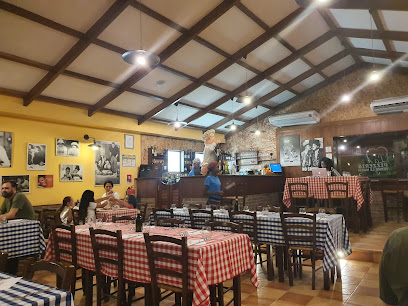
Le Safoutier Restaurant
Experience fine dining at Le Safoutier Restaurant in Yaoundé's Hilton Hotel - where Cameroonian flavors meet elegance.
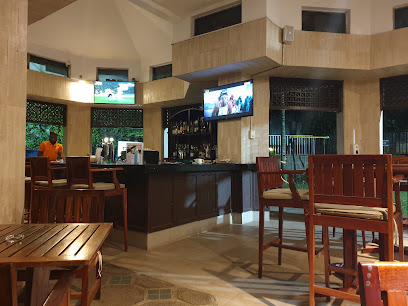
The Famous
Experience the best of Yaoundé's culinary scene at The Famous - where exquisite flavors meet exceptional service.
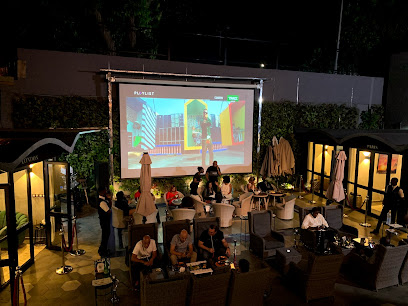
Restaurant 5 Fourchettes
Experience authentic Cameroonian cuisine at Restaurant 5 Fourchettes in Douala - a culinary gem offering delightful dishes in a cozy setting.
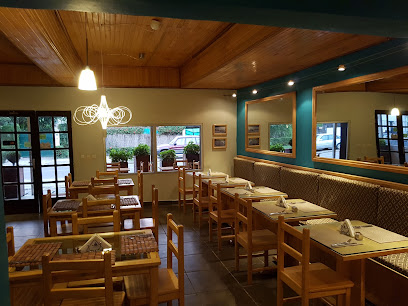
Le Boj, Douala
Discover the vibrant dining scene at Le Boj in Douala – where exquisite cuisine meets lively ambiance for an unforgettable experience.
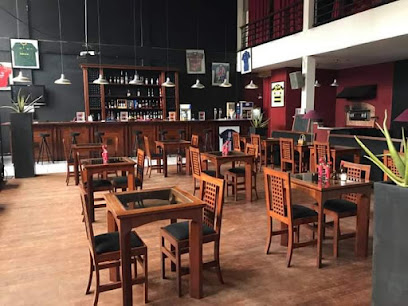
Restaurant Kajazoma
Savor authentic Cameroonian flavors at Restaurant Kajazoma in Yaoundé – a culinary experience not to be missed!
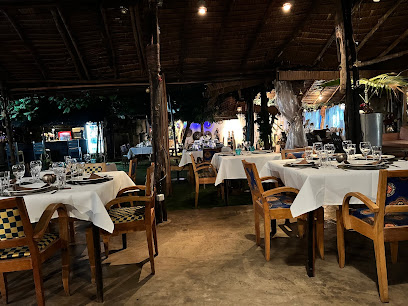
Bombay Masala
Experience the vibrant flavors of India at Bombay Masala in Douala – an unforgettable culinary journey awaits.
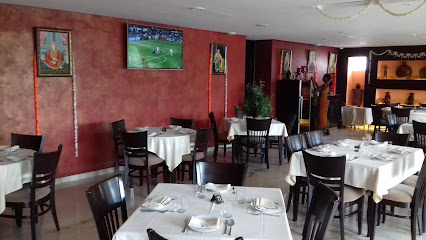
La Salsa Restaurant
Experience the rich culinary delights of Cameroon at La Salsa Restaurant in Yaoundé – where tradition meets taste.
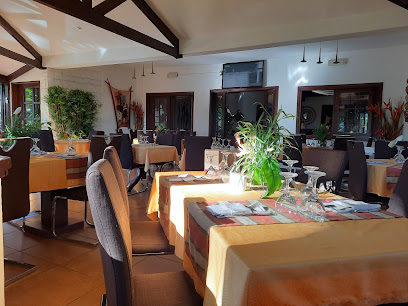
Chez Wou
Discover the rich flavors of authentic Chinese cuisine at Chez Wou in Yaoundé – where every dish tells a story.
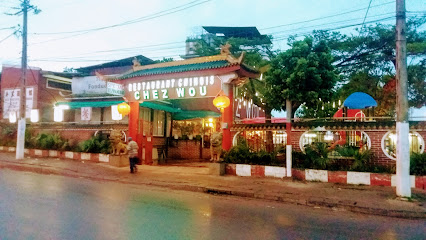
Le Plaisir du Gout
Discover the rich flavors of Cameroon at Le Plaisir du Gout in Kribi – where tradition meets culinary creativity.
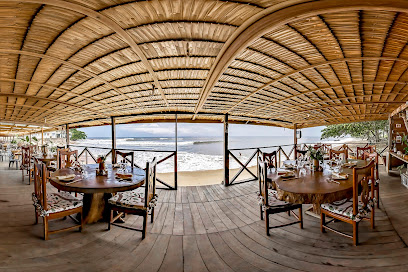
48 SPICES
Experience the best of Buea's barbecue scene at 48 Spices with delicious grilled meats and a warm atmosphere.
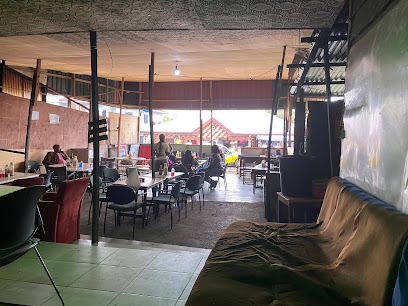
IYA Buea
Experience the vibrant flavors of Cameroon at IYA Buea - where local meets international cuisine in an inviting atmosphere.
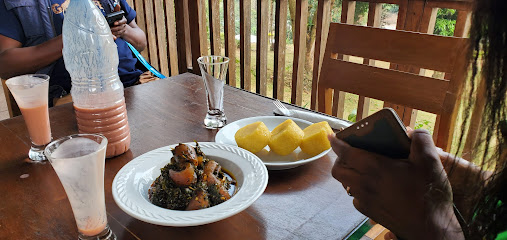
L'Ovalie
Discover L'Ovalie in Douala – where exquisite local flavors meet international cuisine in a vibrant setting perfect for any occasion.
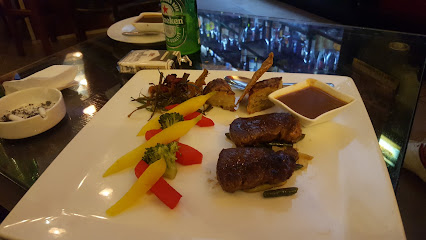
Markets, malls and hidden boutiques
Waza National Park
Explore the rich wildlife and stunning landscapes of Waza National Park in Cameroon, a must-visit destination for nature lovers and adventure seekers.
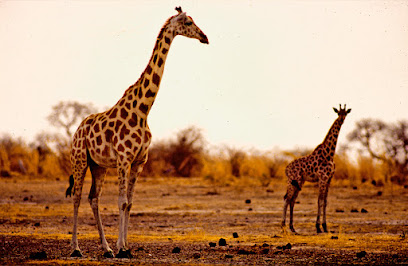
Centre artisanal
Immerse yourself in the cultural heart of Maroua at the Centre Artisanal, where authentic African crafts and vibrant local life await.
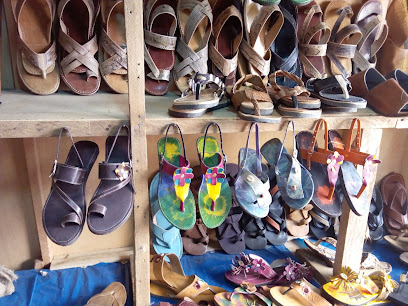
Boutique Bouba
Explore the vibrant offerings of Boutique Bouba, a prime shopping destination in Maroua, Cameroon, providing local products and daily essentials.
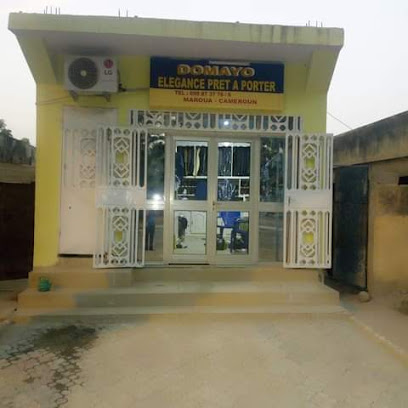
Boutique de Blama
Discover the local charm of Boutique de Blama in Mora, where shopping meets culture in a vibrant and welcoming atmosphere.

Magasin Chinois
Explore Magasin Chinois in Maroua for unique local goods, vibrant atmosphere, and a taste of Cameroonian culture in every purchase.
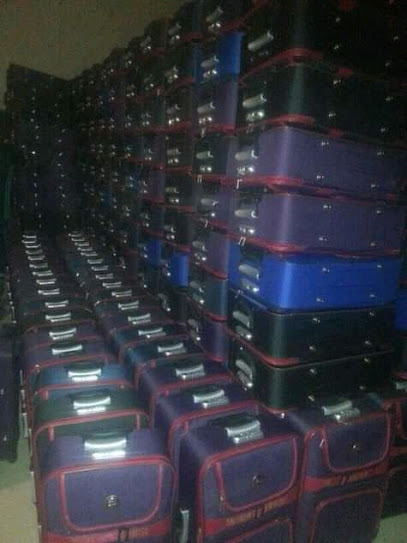
HAGADA BOLDA Commerce
Discover unique fashion at HAGADA BOLDA Commerce in Maroua, where style meets culture in a vibrant shopping experience.
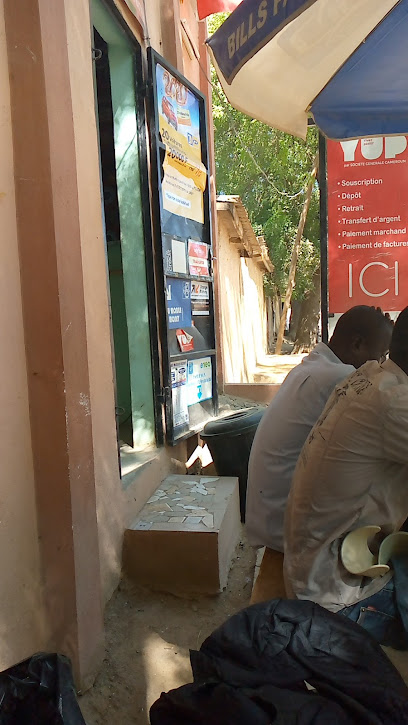
Boutique Abdouraman Yerima Gawel
Explore the vibrant world of organic food at Boutique Abdouraman Yerima Gawel in Maroua - a must-visit for health-conscious travelers.
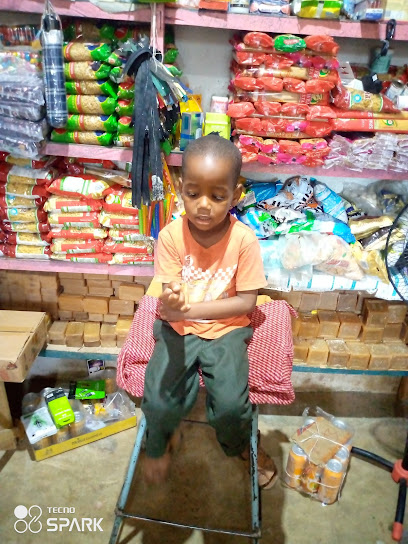
Village artisanal de Maroua
Explore the vibrant Village artisanal de Maroua for unique handcrafted souvenirs and an authentic taste of Cameroon’s rich culture.
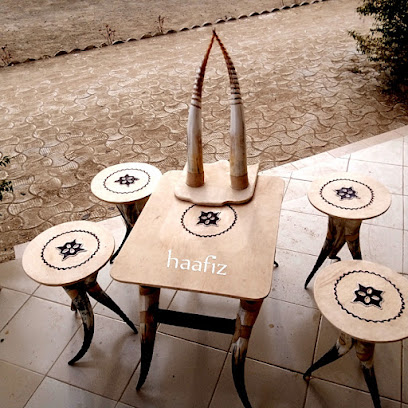
Boutique Bachirou
Explore Boutique Bachirou in Maroua for unique local products and a vibrant shopping experience that reflects the culture of the region.
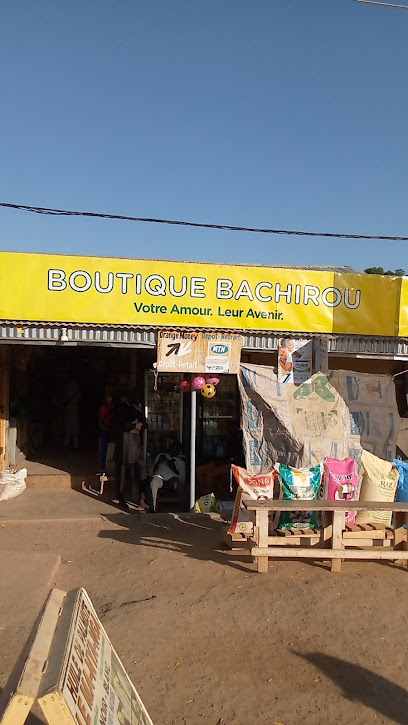
Magasin Moussa
Discover the vibrant shopping experience of Magasin Moussa in Maga, where local culture meets international flair in a delightful retail paradise.

Marché de mémé
Explore the vibrant Marché de Mémé, a shopping paradise offering local crafts, delicious street food, and a taste of Meme's rich culture.

Prince Shop
Explore the stylish offerings at Prince Shop, Maroua's premier destination for contemporary fashion and local flair.
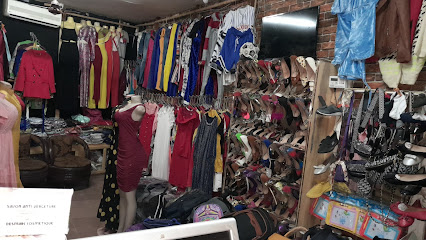
Boutique Hamidou Talaki
Discover a treasure trove of building materials at Boutique Hamidou Talaki in Maroua, where local craftsmanship meets vibrant market culture.

Quartier douria
Explore Quartier Douria in Kousseri for unique gifts and local handicrafts that embody the spirit of Cameroon.
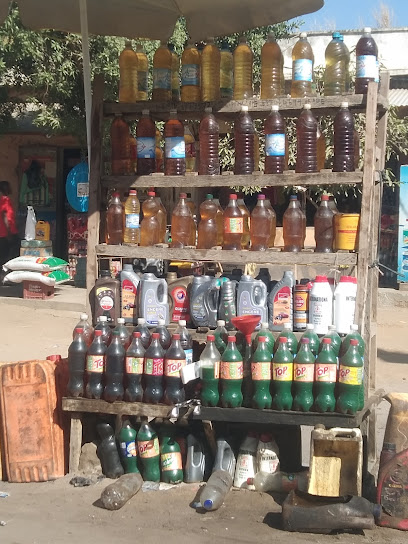
Boutique Salaoudine
Discover Boutique Salaoudine in Maroua - your ultimate duty-free shopping destination for unique souvenirs and local treasures.

Essential bars & hidden hideouts
Pavillon Plus
Experience the vibrant nightlife at Pavillon Plus, a lively bar in Maroua offering a delightful selection of drinks and a welcoming atmosphere.
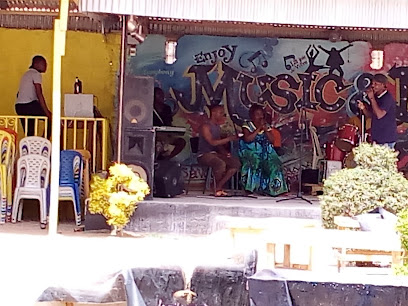
Fotambo Bar
Discover the energetic vibe of Fotambo Bar in Maroua, where local culture meets refreshing drinks in an unforgettable atmosphere.
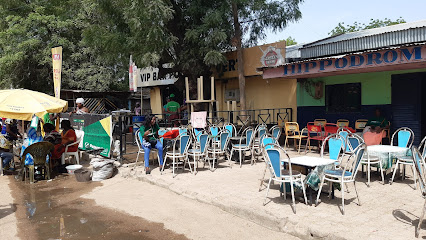
Champs Elysee Bar
Discover the vibrant atmosphere of Champs Elysee Bar in Maroua, where local culture meets refreshing drinks and friendly vibes.
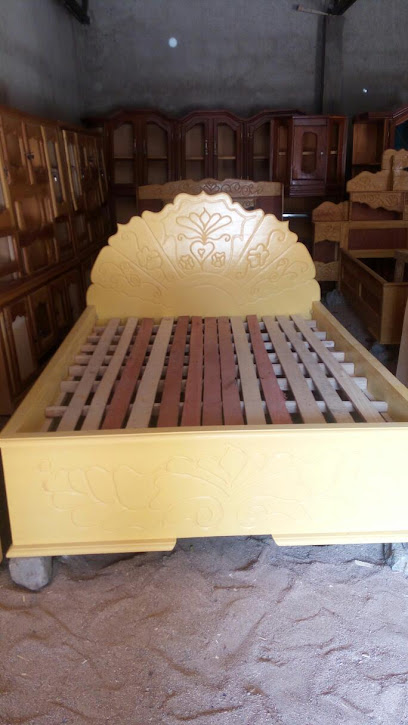
Nollywood Bar
Discover Nollywood Bar in Maroua: A vibrant nightlife destination with refreshing drinks and a lively atmosphere reflecting local culture.
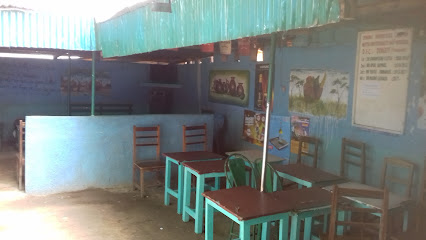
Bambe Bar
Discover the lively atmosphere of Bambe Bar in Kousseri, where locals and tourists gather to enjoy great drinks and vibrant nightlife.
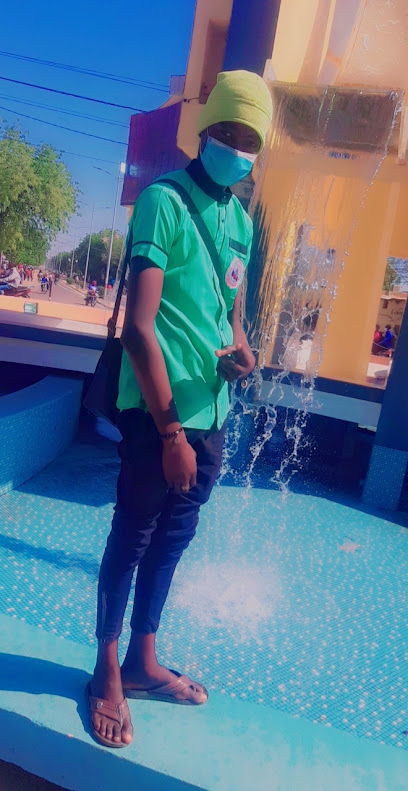
Eto'o tomber Bar
Discover the lively atmosphere and rich flavors at Eto'o Tomber Bar in Mora, where locals and tourists come together to enjoy unforgettable nights.
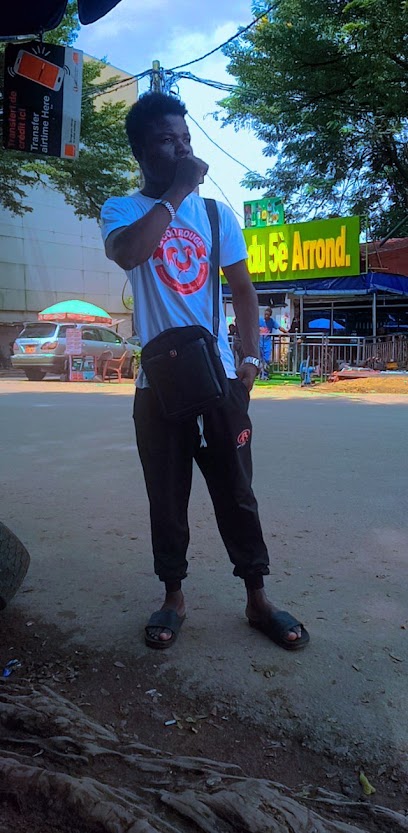
Préférence Plus Bar
Immerse yourself in the lively atmosphere at Préférence Plus Bar, the perfect spot for drinks and socializing in Kousseri.

Talala Bar
Discover the lively Talala Bar in Mokolo, a perfect spot for drinks, music, and an authentic local atmosphere.

Saosao Bar
Discover Saosao Bar: A lively hotspot for cocktails and entertainment in the heart of the city, perfect for unwinding after a day of exploring.

RÉFÉRENCE PIED MONT BAR DE WAZA
Explore the vibrant nightlife at RÉFÉRENCE PIED MONT BAR DE WAZA, the perfect spot for drinks and local culture in Waza, Cameroon.
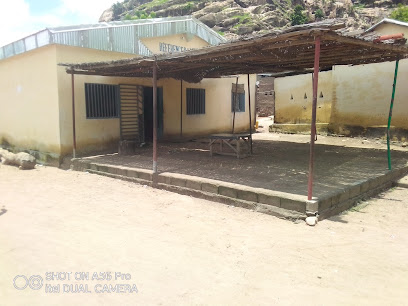
BAR Mamma
Discover the vibrant nightlife of Tchéré at BAR Mamma, where delicious drinks and friendly locals create an unforgettable experience.
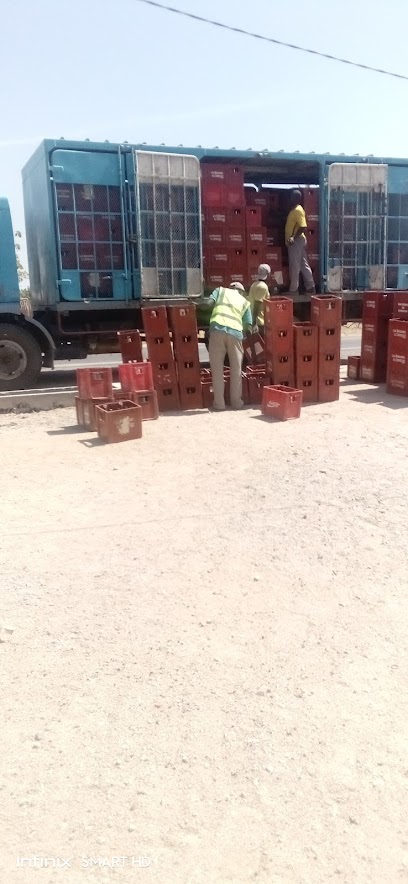
ZOUEKELESSE BAR
Discover the vibrant spirit of Maroua at Zouekelesse Bar, a lively spot for drinks, culture, and unforgettable evenings.

Tchabéwa
Experience the vibrant ambiance of Tchabéwa, a charming bar in Miskine, where local flavors and friendly service create memorable moments.

Amicale bar (papa Tagne)
Discover the vibrant ambiance and local flavors at Amicale Bar (Papa Tagne) in Maroua, a perfect spot for relaxation and socializing.
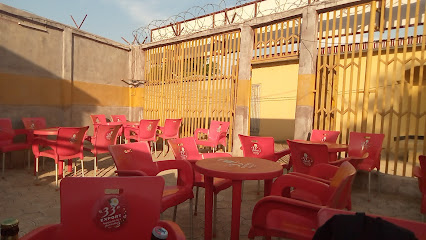
Local Phrases about Waza National Park
-
- HelloSalam
[sa-laam] - GoodbyeAdieu
[a-dyoo] - YesOui
[wee] - NoNon
[non] - Please/You're welcomeS'il vous plaît
[seel voo pleh] - Thank youMerci
[mehr-see] - Excuse me/SorryPardon
[pahr-dohn] - How are you?Comment ça va?
[koh-moh sah vah] - Fine. And you?Bien. Et vous?
[byen. ey voo] - Do you speak English?Parlez-vous anglais?
[par-lay voo ahn-glay] - I don't understandJe ne comprends pas
[zhuh nuh kohm-prahnd pah]
- HelloSalam
-
- I'd like to see the menu, pleaseJe voudrais voir le menu, s'il vous plaît
[zhuh voo-dray vwar luh meh-noo, seel voo pleh] - I don't eat meatJe ne mange pas de viande
[zhuh nuh mahnj pah duh vyand] - Cheers!Santé!
[sahn-tay] - I would like to pay, pleaseJe voudrais payer, s'il vous plaît
[zhuh voo-dray pay-yay, seel voo pleh]
- I'd like to see the menu, pleaseJe voudrais voir le menu, s'il vous plaît
-
- Help!Au secours!
[oh suh-koor] - Go away!Allez-vous en!
[ah-lay voo zahn] - Call the Police!Appelez la police!
[ah-peh-lay lah poh-lees] - Call a doctor!Appelez un médecin!
[ah-peh-lay uh may-deh-sahn] - I'm lostJe suis perdu
[zhuh swee pair-doo] - I'm illJe suis malade
[zhuh swee mah-lahd]
- Help!Au secours!
-
- I'd like to buy...Je voudrais acheter...
[zhuh voo-dray zah-shtay...] - I'm just lookingJe regarde juste
[zhuh ruh-gard zhust] - How much is it?Combien ça coûte?
[kohm-byen sah koot] - That's too expensiveC'est trop cher
[say troh shay] - Can you lower the price?Pouvez-vous baisser le prix?
[poo-veh voo bay-say luh pree]
- I'd like to buy...Je voudrais acheter...
-
- What time is it?Quelle heure est-il?
[kell er ay-teel] - It's one o'clockIl est une heure
[eel ay oon er] - Half past (10)Dix heures et demie
[dees er ay duh-mee] - MorningMatin
[mah-tan] - AfternoonAprès-midi
[ah-pray mee-dee] - EveningSoir
[swah-r] - YesterdayHier
[ee-air] - TodayAujourd'hui
[oh-zhoor-dwee] - TomorrowDemain
[duh-man] - 1Un
[uhn] - 2Deux
[duh] - 3Trois
[twah] - 4Quatre
[katr] - 5Cinq
[sank] - 6Six
[sees] - 7Sept
[set] - 8Huit
[wheat] - 9Neuf
[nurf] - 10Dix
[dees]
- What time is it?Quelle heure est-il?
-
- Where's a/the...?Où est...?
[oo ay...?] - What's the address?Quelle est l'adresse?
[kell ay lah-dress] - Can you show me (on the map)?Pouvez-vous me montrer (sur la carte)?
[poo-veh voo muh mon-tray (soor lah kart)?] - When's the next (bus)?Quand est le prochain (bus)?
[kahnd ay luh proh-shan (boos)?] - A ticket (to ....)Un billet (pour ....)
[uhn bee-yay (poor ....)]
- Where's a/the...?Où est...?
History of Waza National Park
-
Waza National Park was established in 1934 by the French colonial administration. Initially designated as a game reserve, it was later upgraded to a national park in 1968. The park was created to protect the rich biodiversity of the region, which includes various species of flora and fauna unique to the Sudano-Sahelian zone.
-
Waza National Park is renowned for its incredible biodiversity. It is home to over 30 species of mammals, including elephants, lions, giraffes, and a variety of antelopes. The park also boasts more than 379 species of birds, making it a haven for birdwatchers. Conservation efforts have been ongoing to preserve this natural heritage, involving local communities and international organizations.
-
In the late 20th century, Waza National Park faced significant challenges due to poaching. The illegal hunting of animals, particularly elephants for their ivory, posed a serious threat to the wildlife population. Various anti-poaching initiatives have since been implemented to combat this issue, including the establishment of ranger patrols and the use of modern technology for monitoring.
-
In 1979, Waza National Park was designated as a UNESCO Biosphere Reserve. This recognition highlighted the park's global ecological significance and the need for sustainable development and conservation practices. The designation aimed to promote a balanced relationship between humans and nature, encouraging research, education, and the sustainable use of natural resources.
-
Waza National Park is not only a natural treasure but also holds cultural importance for the local communities. The park's landscape has been shaped by centuries of interaction between humans and the environment. Traditional practices, such as transhumance (seasonal movement of livestock), have played a role in maintaining the ecological balance of the region. The local communities continue to be involved in conservation efforts, providing valuable traditional knowledge and support.
-
Tourism has played a crucial role in the development and conservation of Waza National Park. The park attracts thousands of visitors annually, drawn by its remarkable wildlife and scenic beauty. Revenue generated from tourism has been reinvested into conservation projects and community development initiatives, creating a sustainable model that benefits both the environment and the local population.
Waza National Park Essentials
-
Waza National Park is located in the Far North Region of Cameroon. The closest major city is Maroua, which has the Salak Airport (MVR). From Maroua, you can hire a taxi or arrange for a guided tour to take you to the park, which is approximately 120 kilometers away. The journey typically takes around 2 to 3 hours by road. Alternatively, you can rent a car to have the flexibility to explore the area at your own pace.
-
Within Waza National Park, transportation options are limited. It is highly recommended to arrange for a 4x4 vehicle, either by renting one or through a guided tour service, as the park's roads can be rough and challenging. Local taxis are available in nearby towns such as Maroua, but their availability in and around the park is scarce. Walking safaris are also an option for exploring certain areas of the park, but these should always be done with a knowledgeable guide.
-
The official currency of Cameroon is the Central African CFA Franc (XAF). Credit cards are not widely accepted in remote areas, including Waza National Park. It is advisable to carry sufficient cash for your trip, including for park entry fees, accommodation, and other expenses. ATMs are available in Maroua, so make sure to withdraw enough cash before heading to the park.
-
Waza National Park is generally safe for tourists, but it's important to take standard precautions. Avoid walking alone at night and keep your belongings secure. Be cautious of wildlife and always follow the advice of park rangers and guides. The Far North Region has experienced occasional security issues, so stay updated on travel advisories and avoid areas that are deemed unsafe by local authorities.
-
In case of an emergency, the nearest medical facilities are in Maroua. It is recommended to have travel insurance that covers medical emergencies, including evacuation. For immediate assistance, contact the local authorities or park rangers. The emergency contact number in Cameroon is 117 for police and 112 for medical emergencies.
-
Fashion: Do wear comfortable, breathable clothing suitable for hot weather and sturdy footwear for walking safaris. Avoid bright colors that may disturb wildlife. Religion: Do respect local customs and traditions. Cameroon is religiously diverse, so be mindful of different practices. Public Transport: Do negotiate fares in advance when using local taxis. Don't rely on public transport for getting around the park. Greetings: Do greet people with a handshake or a nod. Learning a few phrases in French or Fulfulde can be helpful. Eating & Drinking: Do try local foods such as millet porridge and grilled fish. Don't drink tap water; always opt for bottled water.
-
To experience Waza National Park like a local, consider visiting during the dry season (November to May) for the best wildlife viewing opportunities. Engage with local guides who can provide insights into the park's flora and fauna. Don't miss out on early morning or late afternoon game drives, which are the best times to see animals. For a unique experience, visit the nearby Waza village to learn about the local culture and way of life.
Nearby Cities to Waza National Park
-
Things To Do in N'Djamena
-
Things To Do in Maiduguri
-
Things To Do in Garoua
-
Things To Do in Yola
-
Things To Do in Ngaoundéré
-
Things To Do in Jos
-
Things To Do in Kano
-
Things To Do in Carnot
-
Things To Do in Foumban
-
Things To Do in Bertoua
-
Things To Do in Bamenda
-
Things To Do in Kaduna
-
Things To Do in Mbouda
-
Things To Do in Bafoussam
-
Things To Do in Bafia








